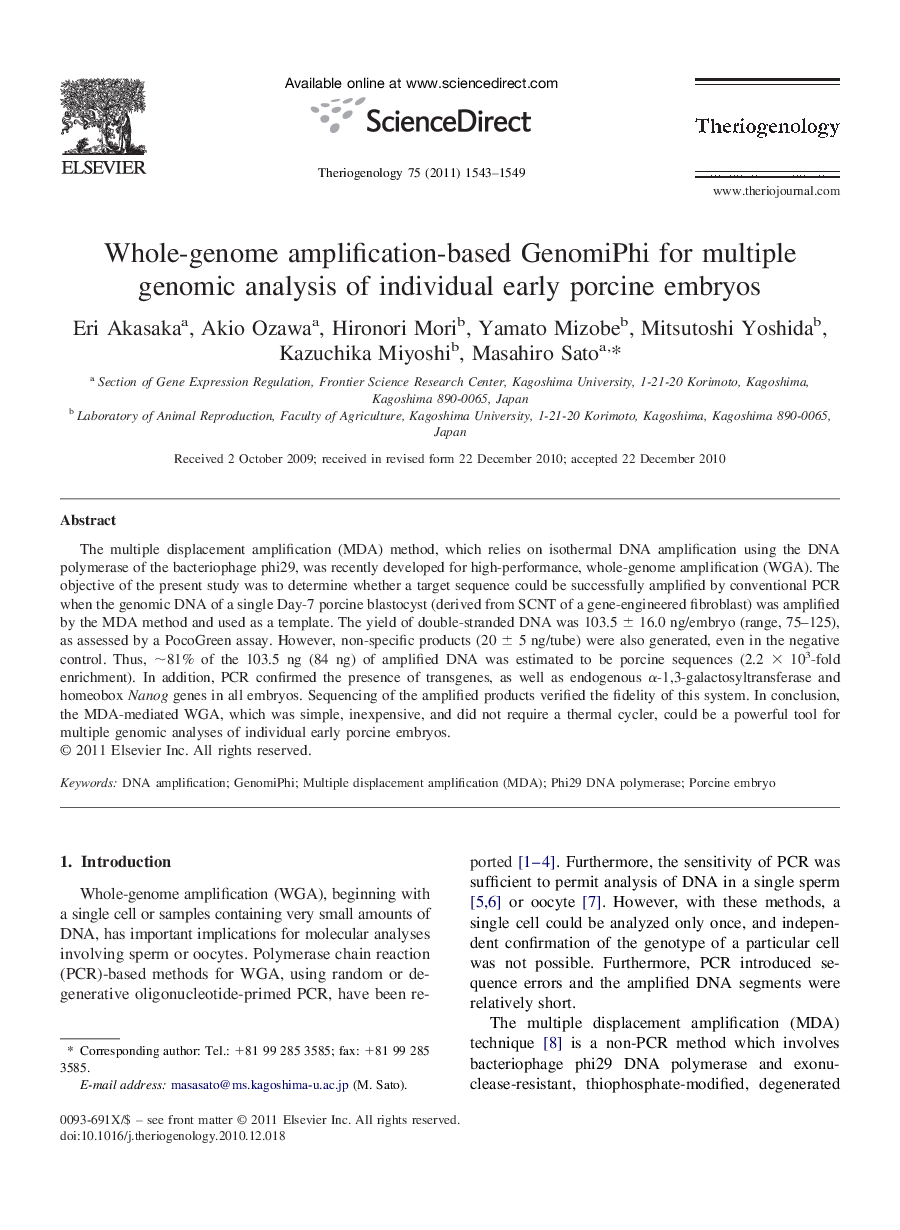| Article ID | Journal | Published Year | Pages | File Type |
|---|---|---|---|---|
| 2097771 | Theriogenology | 2011 | 7 Pages |
The multiple displacement amplification (MDA) method, which relies on isothermal DNA amplification using the DNA polymerase of the bacteriophage phi29, was recently developed for high-performance, whole-genome amplification (WGA). The objective of the present study was to determine whether a target sequence could be successfully amplified by conventional PCR when the genomic DNA of a single Day-7 porcine blastocyst (derived from SCNT of a gene-engineered fibroblast) was amplified by the MDA method and used as a template. The yield of double-stranded DNA was 103.5 ± 16.0 ng/embryo (range, 75–125), as assessed by a PocoGreen assay. However, non-specific products (20 ± 5 ng/tube) were also generated, even in the negative control. Thus, ∼81% of the 103.5 ng (84 ng) of amplified DNA was estimated to be porcine sequences (2.2 × 103-fold enrichment). In addition, PCR confirmed the presence of transgenes, as well as endogenous α-1,3-galactosyltransferase and homeobox Nanog genes in all embryos. Sequencing of the amplified products verified the fidelity of this system. In conclusion, the MDA-mediated WGA, which was simple, inexpensive, and did not require a thermal cycler, could be a powerful tool for multiple genomic analyses of individual early porcine embryos.
